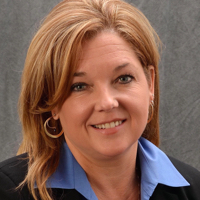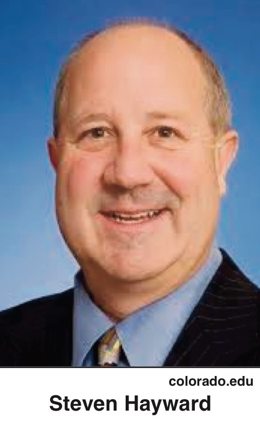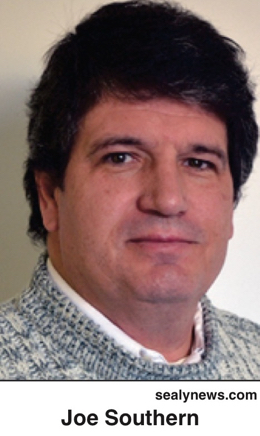Rascals case in brief
In the beginning, in 1989, more than 90 children at the Little Rascals Day Care Center in Edenton, North Carolina, accused a total of 20 adults with 429 instances of sexual abuse over a three-year period. It may have all begun with one parent’s complaint about punishment given her child.
Among the alleged perpetrators: the sheriff and mayor. But prosecutors would charge only Robin Byrum, Darlene Harris, Elizabeth “Betsy” Kelly, Robert “Bob” Kelly, Willard Scott Privott, Shelley Stone and Dawn Wilson – the Edenton 7.
Along with sodomy and beatings, allegations included a baby killed with a handgun, a child being hung upside down from a tree and being set on fire and countless other fantastic incidents involving spaceships, hot air balloons, pirate ships and trained sharks.
By the time prosecutors dropped the last charges in 1997, Little Rascals had become North Carolina’s longest and most costly criminal trial. Prosecutors kept defendants jailed in hopes at least one would turn against their supposed co-conspirators. Remarkably, none did. Another shameful record: Five defendants had to wait longer to face their accusers in court than anyone else in North Carolina history.
Between 1991 and 1997, Ofra Bikel produced three extraordinary episodes on the Little Rascals case for the PBS series “Frontline.” Although “Innocence Lost” did not deter prosecutors, it exposed their tactics and fostered nationwide skepticism and dismay.
With each passing year, the absurdity of the Little Rascals charges has become more obvious. But no admission of error has ever come from prosecutors, police, interviewers or parents. This site is devoted to the issues raised by this case.
On Facebook
Click for earlier Facebook posts archived on this site
Click to go to
Today’s random selection from the Little Rascals Day Care archives….
Click for earlier Facebook posts archived on this site
Click to go to
Today’s random selection from the Little Rascals Day Care archives….
When adversarial system doesn’t lead to justice

ncaj.com
Christine Mumma
May 26, 2016
“I would like to see more cooperation between prosecutors and defense attorneys in their efforts to achieve justice, particularly when there is a credible post-conviction claim of innocence. The overloaded, underfunded, and often inefficient adversarial system doesn’t have to be the approach when common sense and a shared interest in justice can more quickly address injustices for the convicted and victims of crime.
“Prosecutorial conviction integrity units around the country have made that clear, but the North Carolina Conference of District Attorneys seems to be encouraging less cooperation, not more.”
– Christine Mumma, quoted by the North Carolina Advocates for Justice
Mumma, of course, has famously endured the wrath of prosecutors whose autocracy she challenged.
You can like the North Carolina Conference of District Attorneys on Facebook.
Or not.
![]()
In search of ‘clues or indicators’ for ritual abuse
Dec. 28, 2012
Let’s not leave behind “Ritual Abuse: What It Is, Why It Happens, and How to Help” without considering Appendix B, “Similarities in the Lives of Ritual Abuse Survivors.”
Author Margaret Smith “asked survivors to note any clues or indicators in their lives that may have suggested they were ritually abused as a child.” She then “organize(d) these responses into meaningful categories.”
Like the symptom charts of psychologist Catherine Gould, these “meaningful categories” strain to make the wildly anecdotal seem scientific.
“Reactions to Objects That Trigger Memories,” for instance, includes not only “Preference for red meat,” but also “Hated read meat. I have been a vegetarians since I was a child.”
“Indicators from Childhood or Adult Behavior” covers both “Threw up a lot” and “Would never allow myself to vomit.”
And just what manner of abuse might be revealed by “clues” such as – I wish I were kidding – “Addicted to book reading”?
News media newly skeptical about sex allegations?
 Dec. 3, 2014
Dec. 3, 2014
“I was in graduate school in Southern California 30 years ago when the McMartin Preschool scandal erupted, featuring tales of Satanic rituals, underground tunnels, group sex with animals and children, and various acrobatic acts that would challenge Cirque du Soleil, all believed credulously by the media and California prosecutors….
“There was something so literally incredible about (such) ‘Satanic ritual abuse’ cults that serious doubts and questions should have been raised right at the outset.
“Some hard questions are starting to be asked about the latest sequel to the Salem witch trials – the college campus ‘rape culture’ hysteria…. The Rolling Stone story about an especially brutal gang rape at the University of Virginia is provoking considerable backlash– with a few critics suggesting the entire story might be a hoax ….
“It took years for the ‘Satanic child abuse crisis’ to collapse, and several months for the Duke lacrosse scandal to turn around. What is interesting about the UVa story is how quickly it is facing credible challenge….”
– From “The Spirit of Salem Lives On” by Steven Hayward at powerlineblog.com (Dec. 2)
How one young reporter changed his mind
 Nov. 8, 2014
Nov. 8, 2014
“In the summer of 1989, I accepted my first job at a daily paper when The Daily Advance hired me to cover a two-county beat – Chowan and Perquimans. When I arrived, Bob Kelly had just been arrested and charged in about a dozen cases. My editor told me about it, almost in passing, and said, ‘You might want to keep an eye on it.’ I did, and for the next two years it consumed my life.
“I was 24 years old with a wife of two years and no children. I had no experience reporting on police and courts and was very naive as to how the system worked. As the case expanded I became convinced of the defendants’ guilt. Their lawyers wouldn’t let them talk and they were hard to reach in jail. Prosecutors were also tight-lipped, but some of the parents couldn’t stay that way.
“For two years all I had to go on were the stories of parents and what I believed to be a mountain of evidence in the hands of prosecutors. Shortly before Bob’s trial began, three important things happened. I finally got to interview two of the defendants (Robin Byrum and Scott Privott). Their stories were very convincing and I was no longer certain of their guilt. I was also promoted to an editing position and was no longer actively reporting on the case. I was in charge of the reporters who would. Also at this time the ‘Frontline’ show came out, pretty much blowing the lid off the prosecution’s case.
“As Bob Kelly’s trial unfolded, I found that the prosecution had little to no evidence. My faith in the case was weakened and I was surprised when Bob was convicted. Then another defendant (Dawn Wilson) fell and Bob’s wife Betsy Kelly pleaded no contest. That upset me because I was convinced she was innocent and I wanted her to fight and prove it.
“At this point in my life, I had become a parent and soon my first marriage would end. I returned home to Colorado but continued to follow the case from afar. I was happy when the convictions were overthrown and the other charges dropped. As a parent I could now see and understand that what was normal childhood behavior was being grossly misinterpreted as signs of child sex abuse.
“In hindsight, I feel bad for everyone involved in the case. Both sides went through hell. Most of all, though, I feel for the children. Their lives were altered and family and community dynamics changed by forces beyond their control and beyond reason.”
– Joe Southern, recalling his experience covering the Little Rascals case for the Elizabeth City Daily Advance
This 1991 piece, reprinted in a Del Rio, Texas, paper, seems to be reporter Southern’s lone Little Rascals story to survive online. He is now managing editor of The Sealy News in Sealy, Texas.
More recently, the Daily Advance has shown far less interest in the case – well, none, actually – or in Nancy Lamb’s responsibility for pursuing and prolonging it.











0 CommentsComment on Facebook